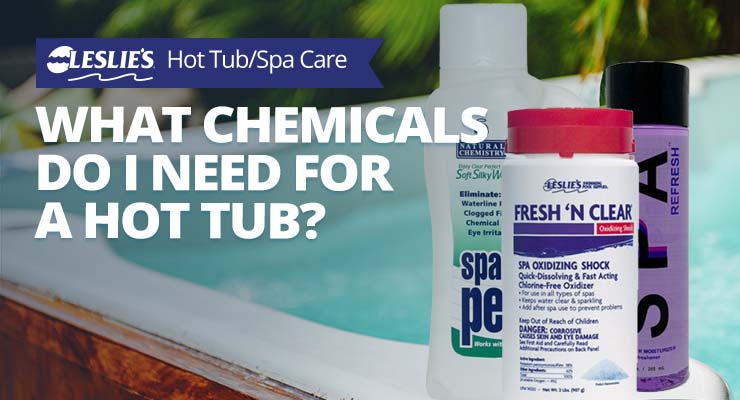
What Chemicals Do I Need for a Hot Tub?
So you finally took the plunge and bought the hot tub that's right for you. Now that you finally own the hot tub of your dreams and have found the perfect location for it, you're anxiously awaiting the moment when you can climb right in and relax. But hold on just a minute! Before you can safely enjoy that warm, bubbling water, you can't forget about the most essential element: maintaining proper water chemistry. Do you have the right spa chemicals?
Much like a swimming pool, managing the chemistry in your hot tub is pretty simple once you understand what needs to go in (and come out of) your hot tub water. Maintaining the chemistry in your hot tub involves balancing chemicals for Total Alkalinity, pH adjusters, sanitizers, and shock treatments. Don’t be frightened by these terms – you don’t need a PhD in Chemistry to understand what needs to go inside your hot tub. This article will help you become an expert on properly maintaining your hot tub water chemistry! So now for the real question: what chemicals do you need for your hot tub?
Must-Have Hot Tub Chemicals
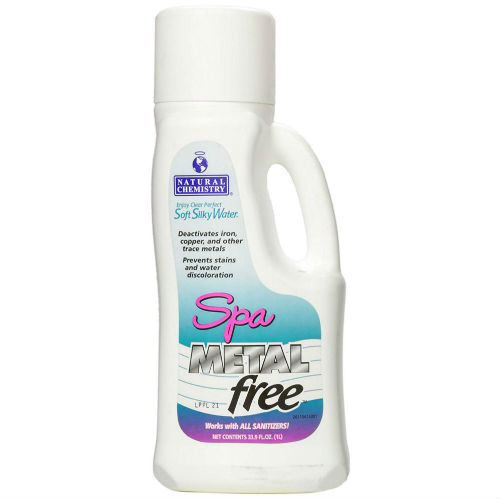
Spa Metal Free
If you are filling up for the first time or reopening your hot tub, let the spa water circulate for about an hour and then use Spa Metal Free. This product is extremely handy, no matter what your water source may be. Metals are present in most tap and well water sources, which is why Metal Free is the perfect solution.
It's important to address metals in the water before any other chemicals are added or adjusted. This one step helps prevent and control unsightly stains from forming on spa and hot tub surfaces. Let the Spa Metal Free circulate for about 4-6 hours before doing anything else.
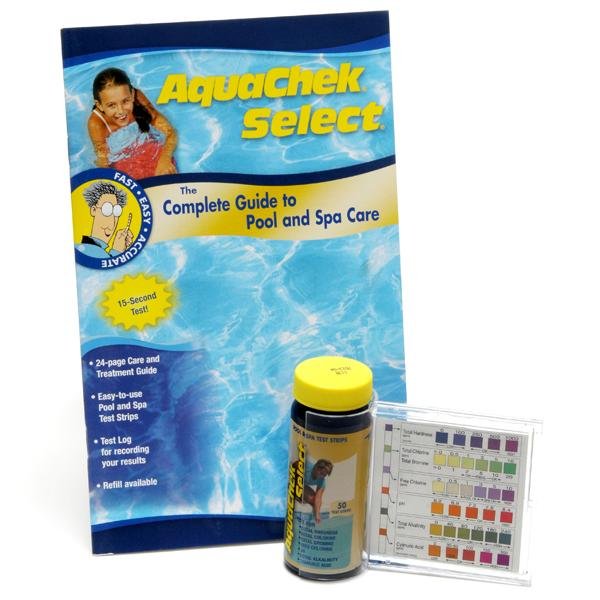
Spa Test Kit or Test Strips
At least 2-3 times per week, you'll need to test the water to make sure your hot tub's current chemical balance is still within the proper ranges. To take a water sample, we recommend scooping up the water from about a foot below the surface. Some of the most common aspects of chemistry to can check with a spa test kit or test strips are Chlorine/Bromine, pH, Total Alkalinity, and Calcium Hardness.
Keep in mind the following recommended ranges for balanced water inside your hot tub. Balanced water ensures that your water stays clean, clear, and healthy. It also protects spa surfaces, equipment, and accessories from stains, scale, and other damage. As we mentioned above, address metals (Copper and Iron) in the water first. Next, balance the Total Alkalinity, pH, and Calcium Hardness. Once the water is properly balanced, add sanitizer and/or shock.
| Chemistry Type | Ideal Range |
|---|---|
| pH | 7.4-7.6 |
| Total Alkalinity | 80-120 ppm |
| Calcium Hardness | 150-250 ppm |
| Metals | 0 ppm |
| Total Dissolved Solids | Not More Than 2500 ppm* |
| Free Available Sanitizer | 2.0-4.0 ppm Bromine, or 1.0-3.0 ppm Chlorine |
*Refer to your spa manufacturer's guidelines for ideal chemistry ranges. Some manufacturers recommend a maximum Total Dissolved Solids reading that is less than 2500 ppm.
DIY TIP: If you ever need help testing and balancing your spa water, just bring a sample to your local Leslie's store for a free professional water test. Our knowledgeable pool and spa experts will review the results of your Leslie's AccuBlue® water test, which precisely measures 10 different aspects of water chemistry. You'll get a detailed, customized water treatment plan with step-by-step instructions to keep your spa water on track.
Total Alkalinity and pH
We’re talking about both Total Alkalinity and pH because they work very close together when it comes to chemical balance in your spa or hot tub. Total Alkalinity is the measured amount of alkaline inside your hot tub water, which helps to control and stabilize the pH in the water. And to put it simply, pH measures how acidic your hot tub water is. See the correlation?
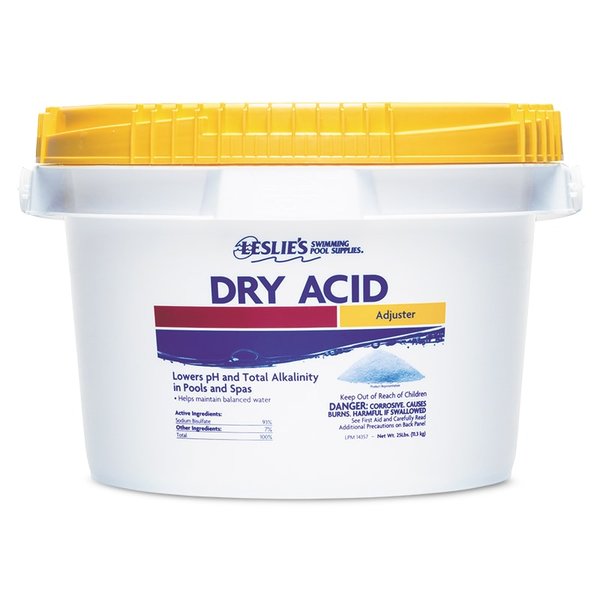
When the Total Alkalinity isn't within the suggested range, this can cause the pH in your water to change frequently and become unstable. Address the Total Alkalinity first before addressing pH imbalances.
- If you need to lower Total Alkalinity, add a Total Alkalinity decreaser.
- If you need to raise Total Alkalinity, add a Total Alkalinity increaser.
When the pH in your hot tub water is below 7.2, the water becomes corrosive, which is uncomfortable to soak in, and it can damage parts of your hot tub’s internal system. When the pH is higher than 7.8, scaling, stains, and cloudy water can begin to appear. A high pH may also reduce the efficacy of your sanitizer if using chlorine.
- If you need to lower your pH, add a pH decreaser.
- If you need to raise your pH, add a pH increaser.
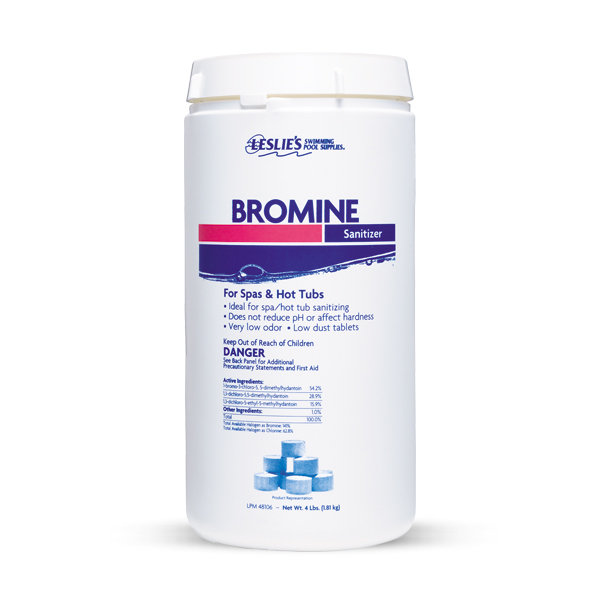
Spa Sanitizer: Chlorine or Bromine
There's a lot of debate when it comes to chlorine vs. bromine when used in a spa. In our professional opinion, we tend to recommend bromine. This is because it holds up better under heat, and can be reactivated with a small amount of chlorine or MPS shock, making it a more effective sanitizer over time. One downfall of using bromine, however, is that it is slightly more expensive than chlorine. But we believe that the cost is worth it, as bromine is a powerful sanitizer that's more resilient against high temperatures and fluctuating pH levels, has a softer smell, and is less likely to cause skin irritation. If using bromine, you'll also need to have a bromine booster on hand to increase bromide levels after draining.
BONUS TIP: Mineral sanitizers are also a popular option for hot tub owners. Used alone or as a supplement to chlorine and bromine, mineral sticks and floating dispensers are easy to use and install in your hot tub. If you're looking for natural spa and hot tub chemicals, take a look at our selection of mineral systems.
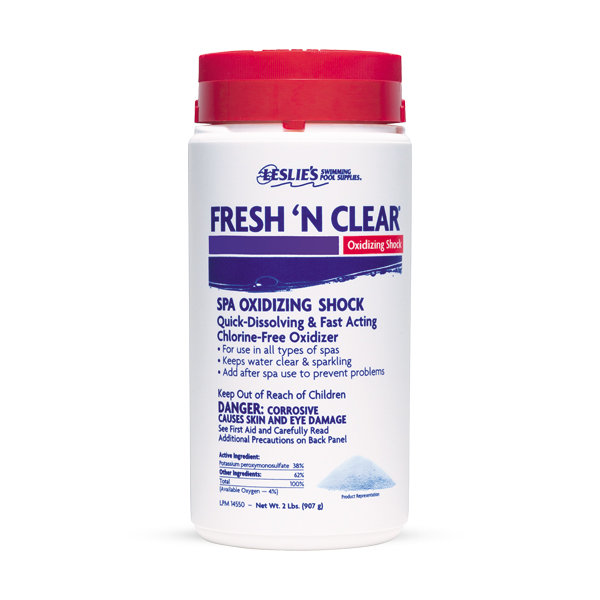
Spa Shock
An integral part of maintaining the water inside your hot tub is shocking it regularly. Shocking your spa water is necessary when you’re first opening your hot tub, after a period of inactivity, or after heavy use. But how do you use this spa chemical? At least once a week, shock your hot tub with granular chlorine. Then add a bit of non-chlorine shock each time you use the hot tub to keep your hot tub clean and clear. It's easy!
Let’s break down the reasons why shocking your spa water is so important:
For one, shock helps kill germs. Chlorine and bromine kill the pathogens living in your spa water. But without regular shock treatments, your hot tub soon becomes overrun with chloramines and bromamines (inactive sanitizer that has bonded with contaminants in the water), and your sanitizer can't work efficiently to keep the germs at bay. Shock breaks down combined, inactive sanitizers, and increases the level of Free Available Chlorine or Free Available Bromine in your hot tub.
Shock also helps to remove organic compounds from the water. If your hot tub gets used a lot, or if 3-4 people use the hot tub all at once, shock treatments will get rid of the resulting organic contaminants and help keep your sanitizer working effectively.
As-Needed Hot Tub Chemicals
Calcium Hardness
Sometimes referred to as Total Hardness, Calcium Hardness is the amount of calcium and magnesium dissolved in your hot tub water. Essentially, it's a measure of how "hard" or "soft" your water is. Did you know that calcium is found is almost every water supply, including the water you use in your home? Measuring Calcium Hardness is the best way to know just how much calcium is in your water.
When Calcium Hardness levels are too low in your hot tub, it leaves your spa is susceptible to erosion and damage. To avoid this, use a hardness increaser to raise levels above 150 ppm. On the flip side, high Calcium Hardness can cause water cloudiness and result in scale formation on spa surfaces and equipment. When levels are higher than 250 ppm, make sure to use spa chemicals like Spa Stain and Scale Free to keep the calcium in solution. If levels get way too high, you may need to drain the hot tub and start fresh.
Spa Clarifier
No matter how clean and sanitary you keep your hot tub, occasionally the water might look a little less than crystal clear. Sometimes it's a water balance issue. Occasionally it's a sign that your filter needs cleaning or replacement. Sometimes, your filter just needs a little help in the form of a clarifier. Spa clarifiers work by grouping microscopic contaminants together into larger clusters that can be more easily filtered out of the water. You may not need to use these chemicals often, but they're nice to have on hand when you need them.
Defoamer
Nobody likes a foamy hot tub. No matter the cause of your bubbly burden, you can quickly knock it down with a capful of Spa Anti-Foam.
Spa Filter Cartridge Cleaner
Beyond simply hosing off your spa filter cartridge(s), it's important to give those cartridges a good deep cleaning every once in a while. Cartridge cleaning chemicals help break down the oily residue and other contaminants that get stuck in the fibers of your filter. Although it won't allow your cartridge to live on indefinitely, it certainly adds some time to its lifespan. The cleaner your filter is, the more efficiently it can keep your hot tub water clean.
Other Spa Cleaning Chemicals
NEVER use household cleaning products on any part of your spa or spa cover. Always use chemicals that are specifically formulated for use in spas and hot tubs. There are chemicals to de-scale spa surfaces, purge biofilm from plumbing lines, polish the spa shell, clean and condition the cover, and even chemicals for general purpose cleaning.
Bonus Hot Tub Chemicals
Enzymes
Break down the oils and organic contaminants in your hot tub the natural way – with enzymes! Weekly applications of an enzyme product not only helps prolong the lifespan and boost the filtration efficiency of your cartridges, but it also prevents unsightly scum rings from appearing at the waterline. Oh, and did we mention it helps your sanitizer work more efficiently, too? You can't go wrong with this natural solution for sparkling spa water.
Spa Fragrances
Spa fragrances are not a need, necessarily. But they certainly are nice to have. You’ll be surprised to know that are several kinds of aromatherapy fragrances made for hot tubs. They range widely, from mood enhancing scents to relaxation enhancers. No matter which one is your favorite, any of them are a great addition to hot tub time. Lucky for you, we have quite a variety when it comes to spa fragrances.
We hope this article has been helpful, and that you've learned more about which chemicals you need for your hot tub. Keeping the right supplies on hand ensures that your hot tub will always be ready for use when you need it. With a hot tub, rest and relaxation are paramount, so enjoy every minute of it! If you're looking for more information about the ins and outs of hot tub chemicals, take a look at our Spa and Hot Tub Chemicals for Beginners post. And of course, our friendly pool and spa experts are always on hand to help out. Just call or stop by your local Leslie's store if you ever need assistance with your new hot tub!